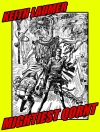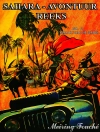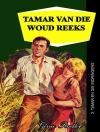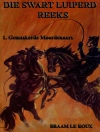The Scottish writer Robert Louis Stevenson’s short novel, The Strange Case of Dr. Jekyll and Mr. Hyde (1886) is a classic of Victorian gothic fiction. The story of an upstanding, educated gentleman who seeks to access his own dark sides and gets caught in a maelstrom of evil captivated late nineteenth-century London readers and then the world. Today Jekyll and Hyde has become the universal reference for 'man’s double being, ’ but the story’s revelatory ending shows that Stevenson did far more than create an archetype in this compelling eerie tale. Frequently adapted for stage and screen, the story continues to mesmerize readers and belongs among the great works of world literature, alongside Mary Shelley’s Frankenstein, Oscar Wilde’s The Picture of Dorian Gray, and Joseph Conrad’s Heart of Darkness.
Spis treści
Contents
Story of the Door1
Search for Mr. Hyde8
Dr. Jekyll Was Quite at Ease17
The Carew Murder Case20
Incident of the Letter25
Incident of Dr. Lanyon30
Incident at the Window35
The Last Night37
Dr. Lanyon’s Narrative50
Henry Jekyll’s Full Statement of the Case58
Afterword by Ulrich Baer76
Biographical Timeline90
O autorze
Ulrich Baer holds degrees from Harvard and Yale, has been awarded Guggenheim, Getty, and Humboldt fellowships, and is University Professor at New York University. He has authored books on poetry, September 11, photography, free speech, a novel, and a collection of short stories, and, in the Warbler Press Contemplations series: Nietzsche on Love, Dickinson on Love, Rilke on Love, Shakespeare on Love, and Wilde on Love.












